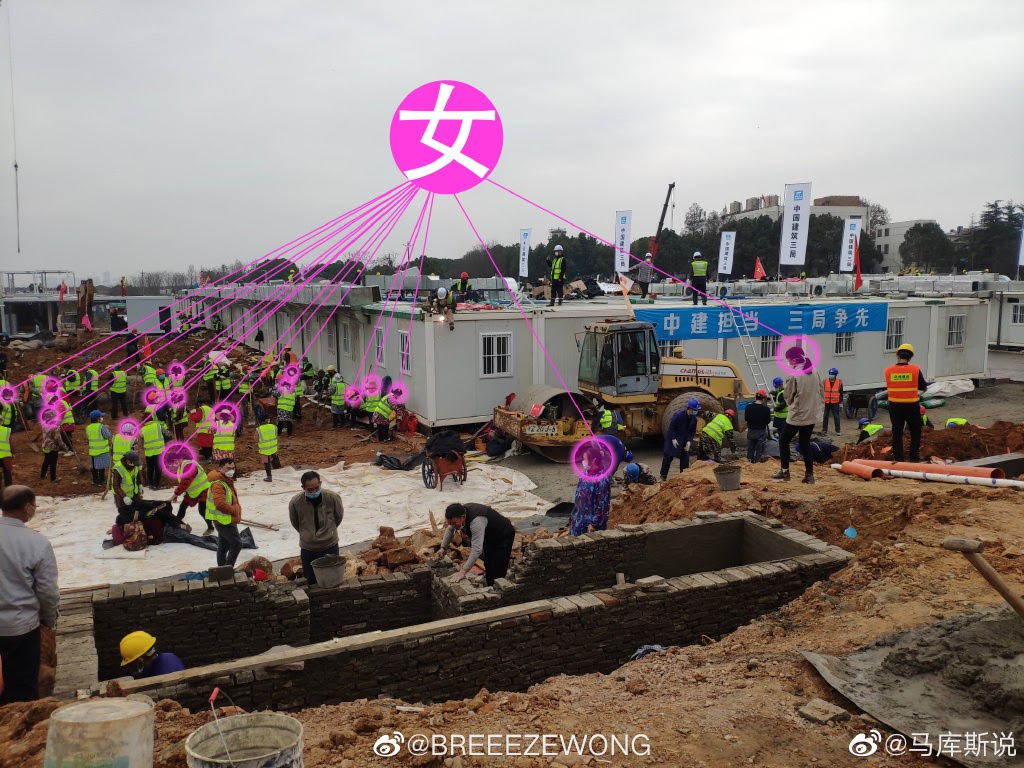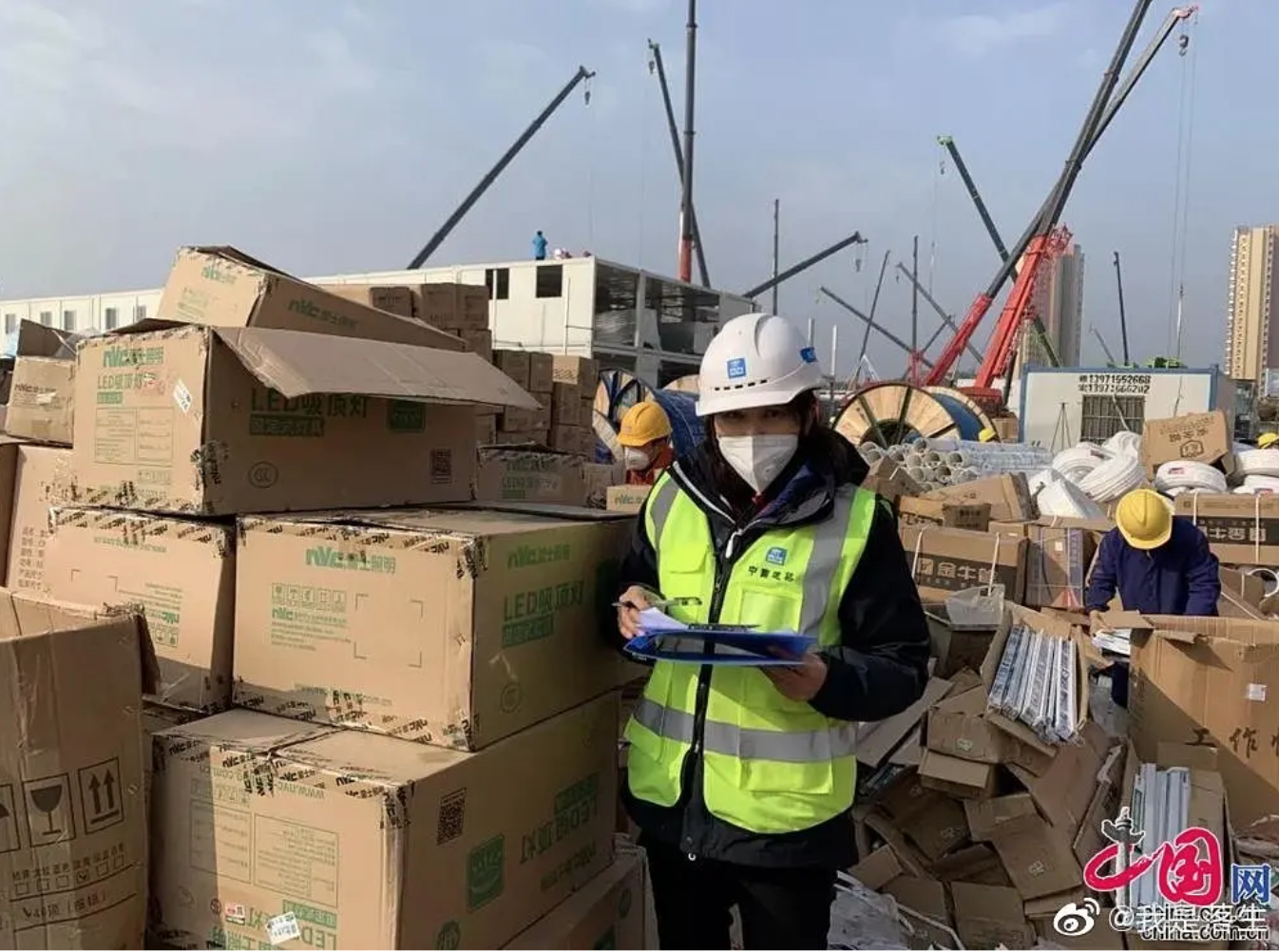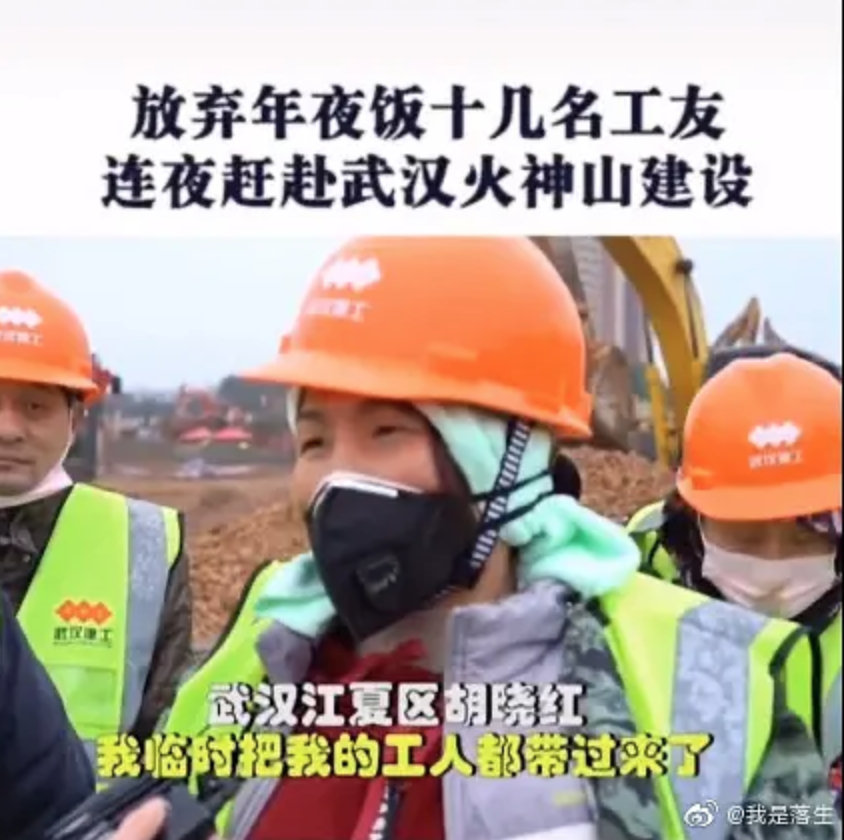Women’s rights advocate calls out sexist coverage of Wuhan outbreak in Chinese media

Women have been playing a crucial role in tackling major crises in China for as long as men have, but it seems that the Chinese news media are still catching up.
Chinese news services have produced a deluge of articles singing praises of brave workers and health professionals combating the novel coronavirus (2019-nCoV) epidemic. But as a group of women’s rights advocates have pointed out, the overall coverage appears to be sexist and misogynist — albeit often unconscious and the result of implicit bias.
The issue was brought to light over the weekend in a social media post published by Weibo user @马库斯说 (mǎkùsīshuō). One specific example that angered her was a viral video on Bilibili, China’s leading video-streaming website. Featuring various clips from different Chinese news outlets, the video tries to tell the story of the Huoshenshan Hospital (火神山医院 huǒshénshānyīyuàn) in Wuhan, the first pop-up medical facility specifically created to address the ongoing public health crisis.
Essentially a congratulatory ode to those who worked tirelessly on construction which was completed on February 2 — less than 10 days after breaking ground — the video contains a slew of close-ups of workers on the construction site. But none of them is a woman.
“I’ve seen photos of women engineers, women construction workers, and women designers who spent time on this project,” @马库斯说 wrote. “But if the content we are consuming now is all like this, I’m afraid that some truth would get lost after years go by. Will people still remember the contribution these women made in this battle in the future?”

@马库斯说 is an outspoken feminist who has been writing extensively about women’s issues on the Chinese internet. In July 2019, she found herself at the center of a controversy after Chinese billionaire and JD.com founder Richard Liu (刘强东 Liú Qiángdōng) filed a defamation lawsuit against her, claiming that the feminist blogger’s remarks about his alleged rape case constituted a malicious attack on his reputation.
@马库斯说’s new post on the coronavirus coverage quickly took off on Weibo, garnering hundreds of replies in a matter of hours. Although Weibo stopped users from commenting and sharing the post by the end of the day, it still inspired an outpouring of women to voice their opinions. “It seems like women are always overlooked when it comes to praises and rewards. If we show no resistance to this narrative now, it’s likely that we’ll be told in many years that men’s contributions far outweigh women’s in this battle, which is a blatant lie,” a Weibo user wrote.

@马库斯说’s complaint also prompted many observers to share similar content published in Chinese media that they thought adopted a subtly sexist tone. In a Weibo post that has acquired more than 40,000 shares and around 1,800 comments, Weibo user @BREEEZEWONG called attention to a photo essay (in Chinese) by Huaxi Metro Newspaper, which included nine photos of construction workers who raced against time to build the Huoshenshan Hospital. Calling them “the most robust cornerstones” of the facility, the newspaper made the group exclusively male. “It should apologize to all the women involved in this project. They were building the hospital, whereas you were obliterating them,” @BREEEZEWONG wrote, adding that the gender imbalance in the coverage was no true reflection of reality. To bolster her argument, @BREEEZEWONG shared a photo she found of the construction site, which shows a dozen women working along with their male counterparts. “What’s going on here? Were these women not good enough to be photographed?” an angry commenter wrote (in Chinese).
These posts also led to the birth of a series of hashtags that were created to raise recognition of women in the national battle against the deadly virus. Congregating around the hashtag #看见女性劳动者# (kànjiànnǚxìngláodòngzhě — #Womenworkersneedtobeseen), which has generated more than 170 million views so far, a coalition of Weibo users has been sharing stories of women from different walks of life who deserve more attention during the outbreak while calling out media outlets to take steps to remedy their sexist coverage.

Before @马库斯说’s post blew up, a few other Weibo users also made their own attempts to examine subtle sexism in coverage of the outbreak. Calling for “equal respect and coverage” of men and women in a post (in Chinese) published on January 26, Weibo user @梁钰stacey (liángyù stacey) blasted Sina News for shutting out women in its reporting of volunteer doctors in Wuhan. @梁钰stacey noted that the unfair coverage finds its roots in the regressive tendency of portraying women in a negative light and downplaying their positive qualities in Chinese media. Citing the undying smear campaign against female drivers as a case in point, @梁钰stacey wrote, “I hope media professionals will apply ethics while conducting newswork. Don’t forget that gender equality is the basic national policy of our country. Don’t use double standards in this critical time.”





